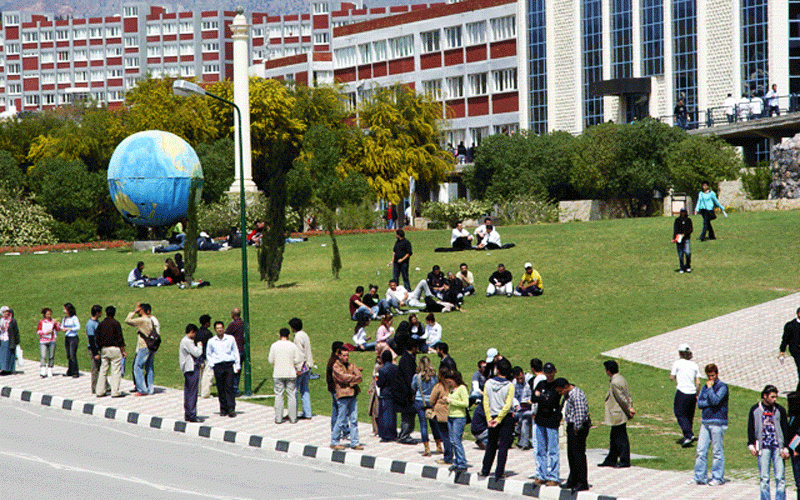
THE predicament of Zimbabwean students incarcerated in Northern Cyprus after being duped into subscribing to fake scholarship programmes has been worsened by a long-standing territorial dispute between Turkey and Cyprus, the Zimbabwe Independent can disclose.
In a month-long running investigation by this publication, Zimbabwean students who have been lured to enrol at universities in Northern Cyprus on scholarship programmes, which turned out to be a scam, revealed in graphic detail, harrowing experiences upon reaching the shores of the European country.
Northern Cyprus has been “illegally” occupied by Turkey since 1974 and is only recognised by Istanbul the world over as a sovereign state.
Last week, as revealed by the Independent, Honorary Consul of the Republic of Cyprus in Zimbabwe Nestoras Nestoros claimed that as many as 5 000 Zimbabwean learners were stranded in the Turkish-occupied territory, and efforts to stem students flocking to that area had proved futile.
As part of the investigation into the ordeal of the students, documents show that Cyprus, since 2015, has been engaging the European Union (EU) and Harare’s authorities to block Zimbabwean students from enrolling with universities in Northern Cyprus. But, as the documents show, efforts by Cyprus have been in vain.
In a letter written by Nestoros on August 17 2015 addressed to the Foreign Affairs ministry, the diplomat expressed displeasure at Harare’s stance towards addressing the problem.
Nestoros’s letter was written after a delegation of Zimbabweans had travelled to Northern Cyprus where they engaged with various university authorities in the Turkish-controlled area.
“The Honorary Consulate of the Republic of Cyprus to Zimbabwe…would like to express its concern and dissatisfaction over the recent illegal visit to the occupied northern part of Cyprus by the Under-secretary of Higher Education Machivenyika Mapuranga, the Director of Higher Education Programmes Martha Muguti and Higher Education Quality Agency Director Godfrey Gurira, which took place between the July 13 and 17 2015.
- Mavhunga puts DeMbare into Chibuku quarterfinals
- Bulls to charge into Zimbabwe gold stocks
- Ndiraya concerned as goals dry up
- Letters: How solar power is transforming African farms
Keep Reading
“Such illegal visits are in violation of United Nations Resolutions 541 of 1983, which reaffirms UN Security Council Resolutions. We note with concern that the Zimbabwean delegation had meetings with the so-called “authorities of the Eastern Mediterranean University”, which is one such illegal entity, located in the Famagusta (Varosha) area and built and operated on land belonging to Greek Cypriot refugees who were forced to evacuate it ahead of advancing Turkish troops during the 1974 invasion of Cyprus by Turkey,” Nestoros wrote.
In yet another letter written on November 27 2015, Nestoros wrote to the same authorities over a visit by Zimbabwean officials to Northern Cyprus. The Independent also gleaned that letter.
However, in a statement sent to this publication by Turkey’s Ambassador to Zimbabwe Berna Kasnakli Versteden, the diplomat highlighted that historically the “Greek Cypriot Administration of Southern Cyprus has been trying to mislead world public opinion by portraying the Cyprus issue as a problem of “invasion and occupation.”
“On the contrary, the Cyprus question arose as a direct result of Greek Cypriots’ desire to bring Cyprus under their domination by annexing it with Greece.
“Toward this end, in December 1963, the Greek Cypriots attacked the Turkish Cypriots all over the island and destroyed the 1969 partnership republic by expelling the Turkish Cypriot partner the binational government. Between 1963-1974, the Turkish Cypriots were forced to live in enclaves under inhuman conditions,” she said.
This, the diplomat added, necessitated the Turkish Peace Operation which was aimed at “saving the Turkish Cypriots from the violent campaign of ethnic cleansing perpetrated by the Greek Cypriots, and destroying the peace on the island. Turkey intervened on the island by exercising its rights and obligations under article 4 of the 1960 Treaty of Guarantee.”
Consequently, Versteden added that Cyprus’ claims of invasion were baseless.
“Therefore, the allegation of invasion is not compatible with the facts in Cyprus, the 1959-60 agreements and the nature and contents of the United Nations Comprehensive settlement process,” she added.







